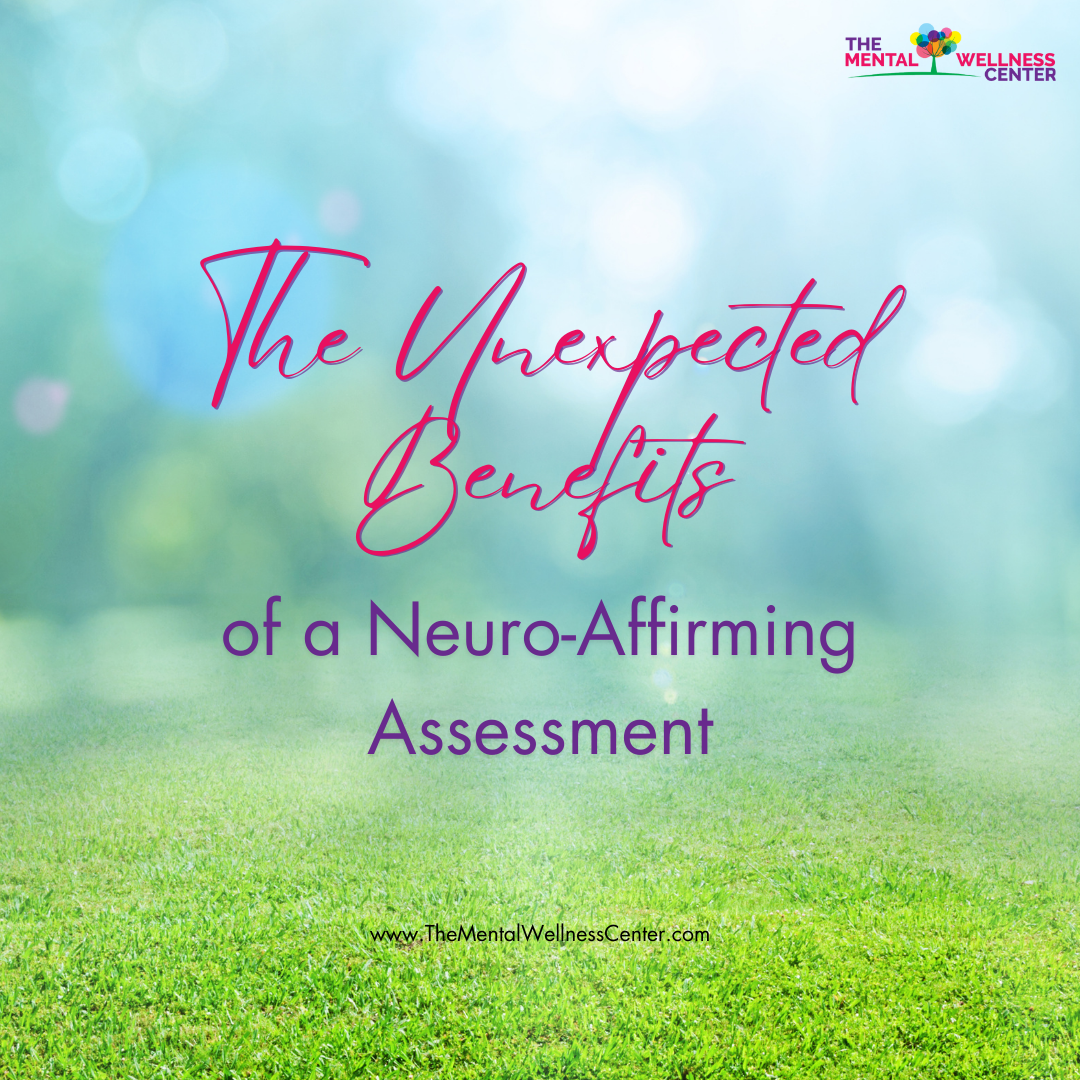The Unexpected Benefits of a Neuro-Affirming Assessment
When I first began working as a Counselor, I was resistant to really dive into diagnosis. I often felt constrained by the rigidity of the criteria and the forced nature of diagnosis by insurance coverage (no diagnosis = no services). Over the last 10 years I have been given many opportunities to observe quality diagnostics and the benefits that clients have had from the assessment. Clients can use a proper diagnosis to receive the appropriate support, which is often the known benefit that many are seeking when they are working on being evaluated. However, many clients report a sense of belonging, a better understanding of themselves, and a reduction of anxiety and depression symptoms after receiving a proper diagnosis.
Sense of belonging
One of the most immediate benefits of receiving a proper diagnosis is the sense of validation it provides. For many individuals, feelings of being "different" or experiencing difficulties with focus, social interaction, or organization can lead to confusion and frustration. A formal diagnosis can clarify these experiences, validating that these challenges are not solely personal failings but are rooted in neurodevelopmental differences. This understanding can significantly reduce feelings of isolation and self-doubt, empowering individuals to embrace their unique traits.
Better Understanding of Self
Receiving a proper diagnosis often leads to increased self-awareness. Individuals begin to recognize their strengths and vulnerabilities, which can play a critical role in personal development. This self-awareness empowers individuals to advocate for themselves, whether in educational settings, workplaces, or social situations. An individual with ADHD may learn to request frequent breaks during tasks, while someone with Autism might seek out environments that are sensory-friendly. This advocacy is essential for personal growth and success.
Reduction in Anxiety and Depression
Understanding one’s own neurodiversity can lead to improved relationships with family, friends, and colleagues. For individuals with ADHD and autism, knowing the specifics of their condition allows them to communicate their needs more effectively. For instance, a person with ADHD may explain how certain environments distract them, while someone on the Autism spectrum might articulate their need for structured routines. This open communication fosters empathy and understanding, which are crucial for healthy relationships.
Research has shown that individuals who receive proper diagnoses and subsequent support are more likely to achieve positive academic and occupational outcomes. Early intervention and appropriate accommodations can lead to higher rates of graduation and employment. For example, students with ADHD who are given the right tools and support often excel in their studies, while individuals with Autism may find meaningful employment in roles that align with their interests and strengths.
How to get a proper diagnosis
If you are meeting with a clinician at The Mental Wellness Center, you will dive into diagnosis in your very first session. This can be uncomfortable due to not yet having a relationship with your clinician, but getting a proper diagnosis at intake is beneficial for both treatment planning and psycho-education moving forward. This is a starting point, and this diagnosis can evolve as you dive deeper into your therapy sessions. Your provider may also refer you for a Neuro-Affirming Assessment if they feel that a comprehensive evaluation may be beneficial.
Sometimes, a diagnosis can be provided by a primary care provider, pediatrician or psychiatrist, especially if they are managing your medications. Pediatricians will often refer parents to qualified providers if there are concerns for further evaluation.
People can also self-refer for an evaluation. This is most common when an adult has a delayed diagnosis or if they have had trouble with the efficacy of appropriate medications and other supports.
While ADHD and autism are often associated with challenges, a proper mental health diagnosis can unlock numerous unexpected benefits. From validation and tailored support to improved relationships and empowerment through education, the positive impacts are profound. It is essential for individuals and families to recognize these benefits and seek the support they need.
If you or someone you know are in the beginning stages of diagnosis for ADHD or Autism, or exploring other diagnoses such as OCD, PTSD, disordered eating, or other concerns, schedule a call with our Intake Team and they will help you navigate the best starting point for you or someone you know.

